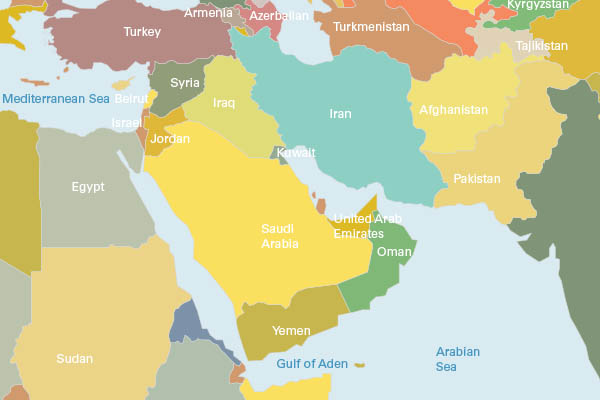Twenty-five of the world’s 196 countries hold more than 5 billion of the world’s 7.5 billion people. In those nations, two thirds of the world’s residents live out their life and faith, and according to a Pew Research study released in April, the amount of restriction on just how they do that varies widely.
Those 25 nations contain some of the worst offenders, Egypt and Russia, as well as some of the least restrictive — Brazil and Japan.
“Among the most populous countries, Egypt and Russia were the only ones to be among the top five (worldwide) in both government restrictions and social hostilities,” wrote Michael Lipka, a senior editor focusing on religion at Pew Research Center.
But even though they weren’t in the top five, India, Pakistan and Nigeria are still populous countries with significant limits on religious beliefs and practices, Lipka wrote. These limits could be in the form of pressure from the government or from the culture and society at large.
“In India, for example, some state governments restricted religious conversion and others banned cow slaughter,” Lipka wrote, noting that this favors the widespread Hindu view that cows are sacred and limits those views and actions of other religions.
But the social pressure there was even greater, he wrote. More than 560 incidents of communal violence happened in India in the first 10 months of 2015, resulting in 90 deaths and 1,688 injuries.
And Nigeria’s social hostilities were deemed even worse, largely in part to the thousands of deaths attributed to the extremist group Boko Haram.
Extreme level
Egypt, on the other hand, had the most extreme level of religious restrictions imposed by the government.
“For example the Egyptian government ‘failed to protect Christians targeted by kidnappings and extortion,’ the State Department reported, a sign that a lack of security for Egypt’s Coptic Christian community was an issue long before the [Islamic State group] bombings at two churches in Egypt on Palm Sunday this year,” Lipka wrote.
Russia’s government restrictions also were noted as “very high,” up a little from the year before thanks to an anti-extremism law that imposes limits on religious minority groups, Pew reported.
In some of the world’s most populous countries — including Brazil, Japan, South Africa and the Philippines — government restrictions were low. But there were social hostilities across the board for all 25 nations, according to Pew data. This, Lipka wrote, might indicate “that large populations carry an inherently greater risk of incidents of social hostilities involving religion, simply because there are more people.” (TAB)






Share with others: